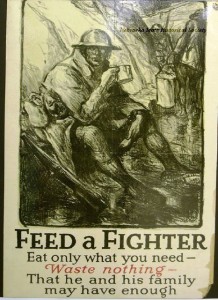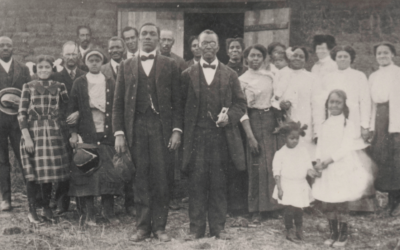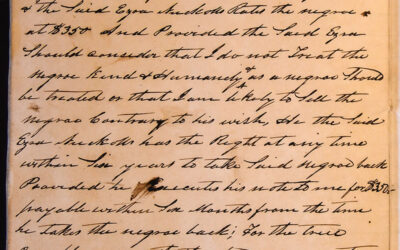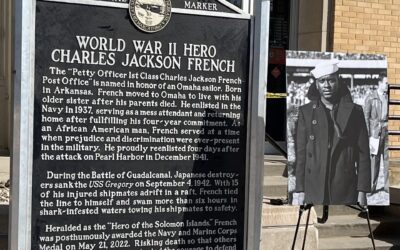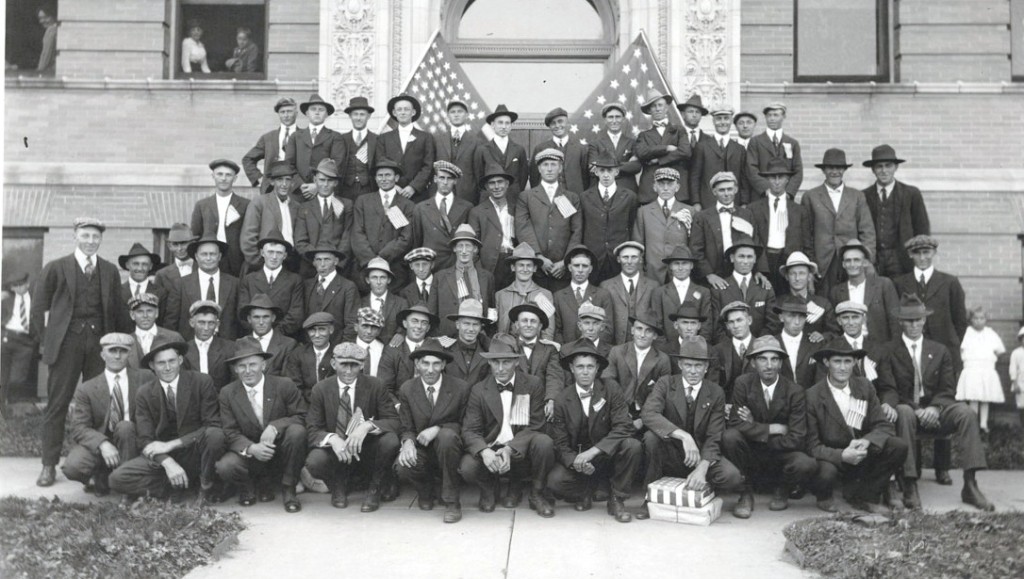 New recruits at the Saunders County Courthouse in Wahoo, ready to depart for Camp Funston, Kansas. Like Fred Pickering, many Nebraska soldiers received training at Camp Funston and at Iowa’s Camp Dodge. NSHS RG2963-3-2
New recruits at the Saunders County Courthouse in Wahoo, ready to depart for Camp Funston, Kansas. Like Fred Pickering, many Nebraska soldiers received training at Camp Funston and at Iowa’s Camp Dodge. NSHS RG2963-3-2
Millions of U.S. soldiers fought and died in World War I, but Fred Pickering, a member of an engineer regiment of the Eighty-eighth “Cloverleaf” Division, was one of the very few who recorded his experiences. Pickering was a farmer from Ulysses, Nebraska, who wrote a lively account of army life (from the training camps of the Midwest, England and France to combat on the Western Front) for the folks back home.
Though the war ended before Pickering saw active combat, he was close enough to the front lines in the Vosges region of France to hear artillery, machine gun and rifle fire and to come under aerial attack. Pickering detailed his transformation from civilian to citizen soldier with an understanding of both humor and horror. He tells of barrack antics and of extreme sleep and food deprivation, which made Pickering decide that “late to bed and early to rise makes a man feel like he didn’t care to be alive.” Pickering also gave accounts of his Atlantic crossing, the drills and training camps he lived in, the foreign people he met and the landscape he trudged over.
After the war ended, Pickering spent several months “Cleaning up France” before ending his military service on June 15, 1919. Pickering then returned to Ulysses, where he married Gladys Cornelia Hurt and continued his career as an agriculturist. He died on February 12, 1964, at the age of seventy-two. Pickering may have been an “ordinary” soldier, but the foresight he had to write down his experiences gives posterity an extraordinary account of a soldier’s life.
For the rest of Pickering’s story, see “From Civilian Life to Army Life: Fred Pickering’s World War I Narrative,” from the Fall 2009 issue of Nebraska History magazine. An excerpt (scroll down to the third article) is available online at the Nebraska State Historical Society’s website. Receive current copies of the magazine as a benefit of membership in the NSHS. Both full members and subscription-only members receive four issues yearly.

